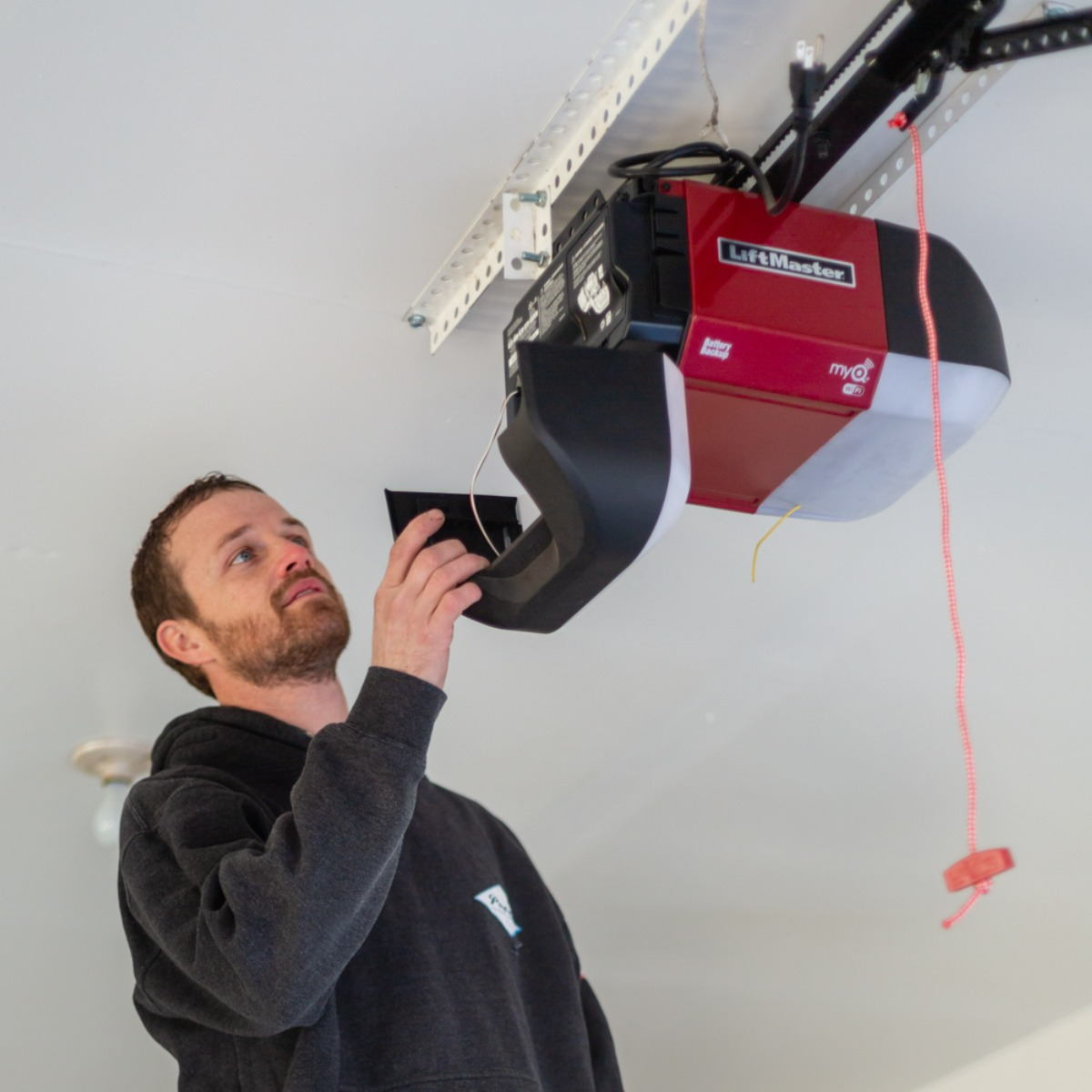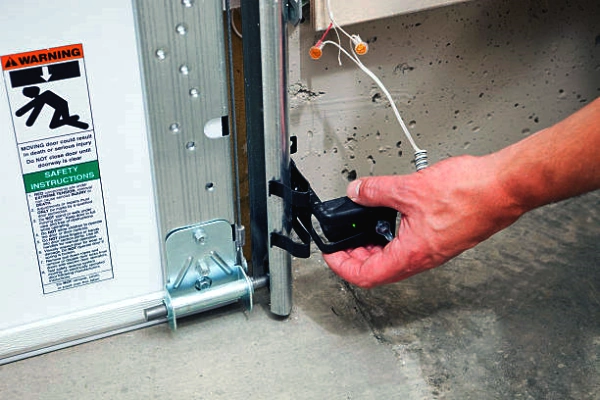Picking a garage door opener can be confusing because of the variety on the market. While the fundamental purpose of all garage door openers is the same, they are not created equally. Some will offer quieter operations, last longer, and have a smooth overall function, while others may work well for some time but will quickly begin to encounter all sorts of problems. You must understand the horsepower of garage door openers and other factors to pick the right one. In this article, we will explain how to choose a garage door opener. Let’s get to them;
1. Drive Options
Most garage door openers share the same design and use a motor that drives a trolley along a rail or a carriage. The trolley or carriage is attached to a chain drive the door, which moves the door up and down as the motor pushes and pulls. Typically, the only difference between these types is the mechanism used to move the trolley via motor. The popular types include the following;
Chain Garage Door Openers
These doors rely on a metallic chain to move the carriage, which moves the door up and down. Since these double doors are made of metal, you will experience some noise and vibrations while using these doors. The major benefits of these garage door openers include durability and affordable prices. However, they might not be suitable for garages that are located next to bedrooms.
Belt Garage Door Openers
Belt and chain garage door openers use the same exact mechanism; the only difference is that a belt opener uses a belt instead of a chain. It offers quieter operations and reduces vibration caused by the metal in its chain counterpart. Hence, this may be an excellent option if you have a garage next to your bedroom.
Screw Drive Garage Door Openers
These garage door openers use a threaded steel rod to pull and push the carriage. As the rod rotates, it lifts or lowers the car garage door itself, which does not create as much noise as belt garage door openers. Furthermore, there are not many parts in this system, meaning less maintenance. All of this comes at a higher cost, though, which must be a consideration for some people.
2. Horsepower
After selecting the appropriate type of garage door openers, you have to look at the horsepower in each category. The size and weight of your garage door will determine the horsepower required for the garage door openers. Furthermore, you will consider whether the door is single or double. The heavier the weight unbalanced door, the more horsepower it will require from the motor.

The typical horsepower you get in garage door openers for domestic use includes ⅓, ½, and ¾. Your preferred choice for the lighter weights should be ⅓ and ¾ for the heavier ones. For those who have a few doors open up with moderate weight, ½ works the best, which is primarily why it is the most popular of the three.
It must be mentioned that higher horsepower increases the motor’s longevity, mainly because the components used in them are rugged and designed to withstand stress.
3. AC vs. DC
AC and DC are current types; while they share the same function, their sources are different. AC, or alternating current, is what you typically use in the household. It is via the power grid in your area, and all you have to do is plug the cable of the new garage door opener in to make it work.
In contrast, DC current is stored in batteries and is supplied directly from them. It is also known as direct current.
Whether a motor is DC or AC can impact its performance and price. For example, AC motors are not expensive and last longer. In contrast, DC motors cost more but use less energy than AC motors. Furthermore, AC motors are more likely to feature a chain system, whereas you will typically get a full belt drive system on DC motors.
AC and DC are not superior or inferior to each other. Both of them offer unique benefits and have their share of drawbacks as well. You have to figure out which suits you the most, depending on the type of power you have at home, to make a choice.
4. Backup Power
If the power to the car garage ever goes out, you don’t want to be trapped inside or outside. As a result, selecting a garage door opener that works despite a lack of power is prudent. There are two options for this: manual release or battery backup. Manual-release garage door openers, as the name implies, can be opened manually if the power goes out. Whereas those with battery backup begin drawing power from the battery to continue operations.
5. Garage Door Size
The standard size of garage door openers is about 7 feet because most garage doors are the same size. If your door size is too big or too short for 7 feet, you would have to find a non-standard door, and their prices can vary greatly based on their sizes.
6. Wi-Fi Connectivity
The market offers garage door openers that have Wi-Fi built into them. You can connect them to the Wi-Fi at your home and operate them via your phone. In addition, these garage door openers also offer various handy features, including monitoring, accessible controls, seamless integration, and an overall simple setup.
7. Safety and Security
Modern garage door openers come with a variety of safety and security features. Some use electronic beams to offer entrapment protection and prevention. The rolling-code technology prevents code theft because it does not work with any other front door remotely or remote, even if someone has the exact same model as you.
Picking The Right Garage Door Opener: Final Words
Picking the right garage door opener becomes easier when you know exactly what you need to look for. However, regardless of how much horsepower or which one you pick, you will have to maintain it occasionally, and this is where Powell Garage Doors come in. Our experienced and skilled team offers repairs, installations, and everything in between. Visit us to learn more!



0 Comments